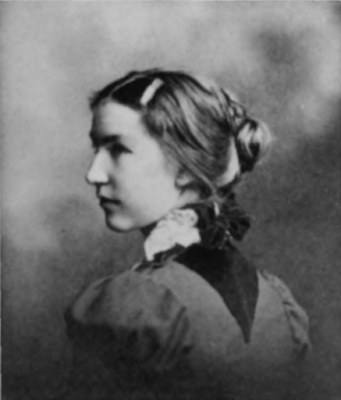Well, it's July, and that means it's time to talk chronology. Okay, any month can be time to talk chronology. So, let's do that because a new attempt at a Sherlockian timeline has been published and it needs to be examined. I got this book and took the time to sit down and read it cover-to-cover. No kidding. It's not tightly packed text, but it's still 124 pages of work, and I found it interesting - interesting enough to be featured in this month's blog post.
The first thing I did was to go to his listing of dates in the back to see if anything stuck out. Several did. I saw four cases dated within the heavily accepted dates of The Great Hiatus, and I saw A Study in Scarlet (STUD) placed in 1884 instead of the very popular 1881 or 1882. (I had already been alerted to this one, so I'd prepared myself.) These told me I was either in for a fascinating ride or was about to read the ravings of a man who was a bit meshuga. Happily, I found both. I won't give away too much of his timeline because I want you to read it yourself. But know that it's quite interesting. And a little maddening.
So, if I'm not going to spend the whole post talking about Bruce's book, what am I going to talk about, you ask? Well, the reason I was so taken by his ideas was because it made me think about something in a (possibly) new way - how much should we actually trust about Watson's word? Confirmation bias is a real problem when it comes to work like this and is often the enemy of a chronologist as it causes them to have to get themselves out of corners with outlandish theories and explanations. They're trapped by their own stubbornness. The freedom to move around and explore is gone. But what if we tried making a timeline by throwing off everything we know and generally accept to do it? And if we do, where do we begin to ignore, and how much?
When Helen Elizabeth Wilson published her paper 'The Life Of Sherlock Holmes' in October 1898 in The Cornell Magazine, she made the first known attempt at any kind of a chronological structure. Whether she was the first actual Sherlockian scholar on this planet is mildly debatable, but the fact that she was the first to look at chronology puts her in a rarified room. Even back then she recognized that Watson's marriages were a sticking point. But she didn't dismiss it. Bruce does for the most part, and it may be a dangerous road to travel. (And a fun one.)
Those first chronologists had the joy of full discovery and lack of containment when it came to putting dates to the stories. After that it got harder. By improving things, they got worse (sort of). People began realizing there were things that would make the job tough, and as such I have over 40 timelines in my database. But what do we ignore? Everything? Or just the things we don't want to deal with? Do we start by deciding that Holmes and Watson weren't even their names and that they were actually Merle and Judy Stratfordshiresworth from Newark? No, we can't. To say that even the base information is bad negates reading them in the first place. So, we have a starting point. What about London, and Baker Street? London cannot be debated. It takes a lot of the romance out of it all if it is. Baker Street causes no problems, but the address certainly has. Still, we have the major players, the city, and the street. Good.
Now, what then? How about the basic period of time? Chronologists may not agree on much, but none dare leave the established 1870s-to-August 2, 1914, range. After that I'm not sure where to go. Each detail of The Canon has been squeezed to death trying to prove or disprove its actual existence in the cases. Secondary players, clothing, pipes, library, furniture, flat layout - all questioned. Stepping outside we have problems with streets, towns, countries, buildings, newspapers, businesses, weather, and what blind typesetter made Watson's calendars for him. I wrote once about looking at what roll crocuses played in dating stories. William S. Baring-Gould uses them to help date 'The Empty House' (EMPT) but completely ignores them in 'The Speckled Band' (SPEC). (Confirmation bias, again?) So where does it end?
Bruce tells us right up front that we should worry a lot less about the big problems, and I agree. But we have to stop the lack of worrying somewhere. I am not a fan of saying that Watson misread his own handwriting, or the typesetter made an error. These are easy. And happily, they don't come up often. But if we do this once or twice, why don't we other times? Why not all the time? What if Watson was wrong about every single date in The Canon and all the back-and-forth is meaningless because of it? Maybe when a date actually jives with the evidence in the story it's merely a happy accident. Perhaps he just got lucky or decided to actually try and make a legitimate attempt at correctness that day. It's a tough call.
I love, love, love the idea of starting with a blank sheet and seeing what can be created. Many have done it, and yet always seem to end up in the same eraser marks and scribbled out lines on their page. Still, it's an exciting thought. But you have to establish what you are and are not going to use. If you don't, your project may turn out no better than dozens of others. It's that kind of commonness that makes people read the first chapter of a chronology and then shelve it. Or get that glassy-eyed look at gatherings when trying to be polite after we start rambling about dates.
What I'm getting at is that we have to be careful about how much we're willing to accept when attempting to date one, several, or all of the original 60. I am not downplaying Bruce's timeline in any way - I was really taken with it. And even though some dates made my brain twitch, I still respected his logic. I really was truly impressed by his work, and I intend to read it more times just so I can get a refresher on that childlike innocence of looking at that proverbial blank page. I dare say he changed my mind about some of the stodginess this part of the hobby deals with. My mind is a little freer to venture out and see what can be accomplished. And for that I thank him.
As you can see, things continue to stay exciting here in the world of Sherlockian chronology. Well, maybe not exciting. How about interesting? Yeah...interesting. We'll see what next time delivers for me to discuss with you. I'll see you soon, and as always...thanks for reading.





Great job, Vincent. Thank you! Plenty of thought-provoking comments. As far as being a bit (or a lot) meshuga, isn't that a prerequisite for going down this rabbit hole?
ReplyDeleteLOL. Yes, it certainly seems to be.
Delete